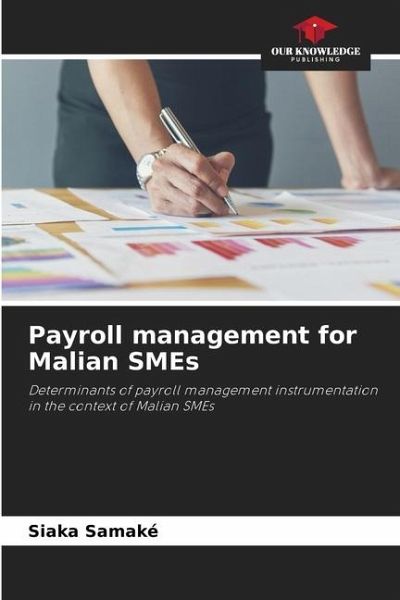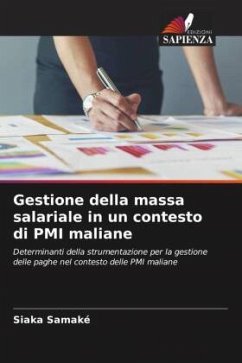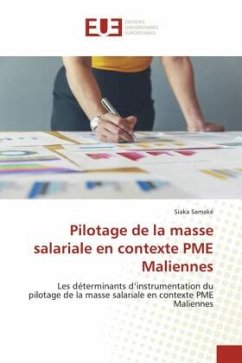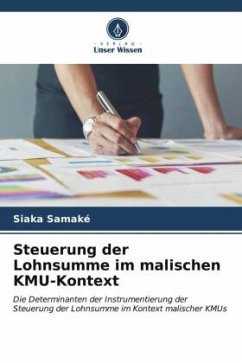
Payroll management for Malian SMEs
Determinants of payroll management instrumentation in the context of Malian SMEs
Versandkostenfrei!
Versandfertig in 6-10 Tagen
29,99 €
inkl. MwSt.

PAYBACK Punkte
15 °P sammeln!
This book is the fruit of a study involving Malian SMEs. It is the result of numerous stereotypes indicating that African SMEs are lacking in the use of management tools. Indeed, some analysts tend to support a loyal preference among SME managers for informal (intuitive) management. Others assert the presence of a mixed management style, i.e., straddling the line between informal (intuition) and formal (normative tools). Referring to the general philosophy of the contingency theory of (Affès and Chabchoub, 2007), we support the logic that two companies belonging to the same sector, producing ...
This book is the fruit of a study involving Malian SMEs. It is the result of numerous stereotypes indicating that African SMEs are lacking in the use of management tools. Indeed, some analysts tend to support a loyal preference among SME managers for informal (intuitive) management. Others assert the presence of a mixed management style, i.e., straddling the line between informal (intuition) and formal (normative tools). Referring to the general philosophy of the contingency theory of (Affès and Chabchoub, 2007), we support the logic that two companies belonging to the same sector, producing in the same way, of the same size or age will never have the same way of doing control. The study starts from the premise that building a control system generally requires a tailor-made approach (Giraud et al, 2005). It focuses on the analysis of the link between payroll management instrumentation and contingency factors. We use a mixed-method approach, combining qualitative and quantitative research.














